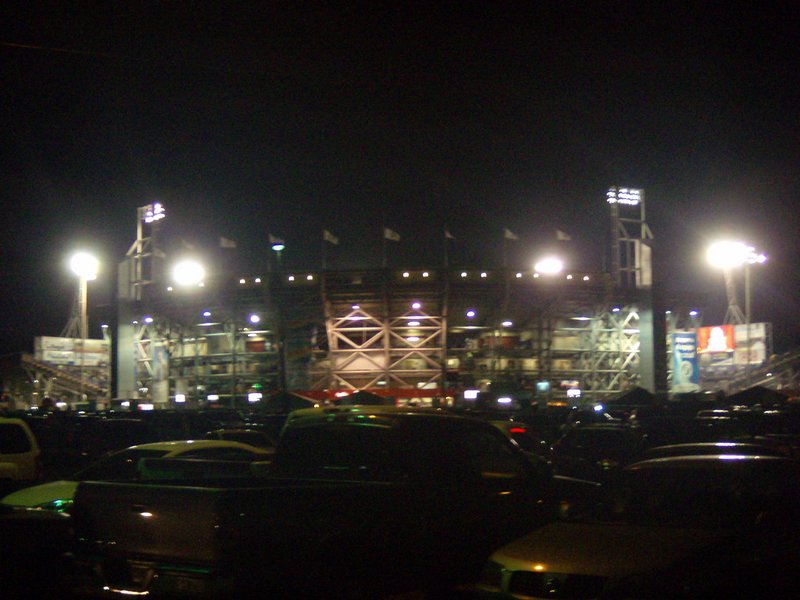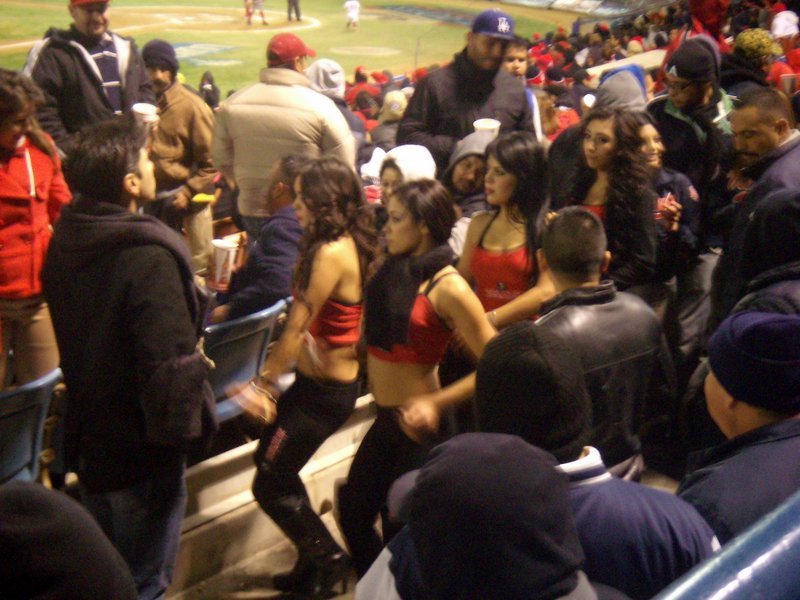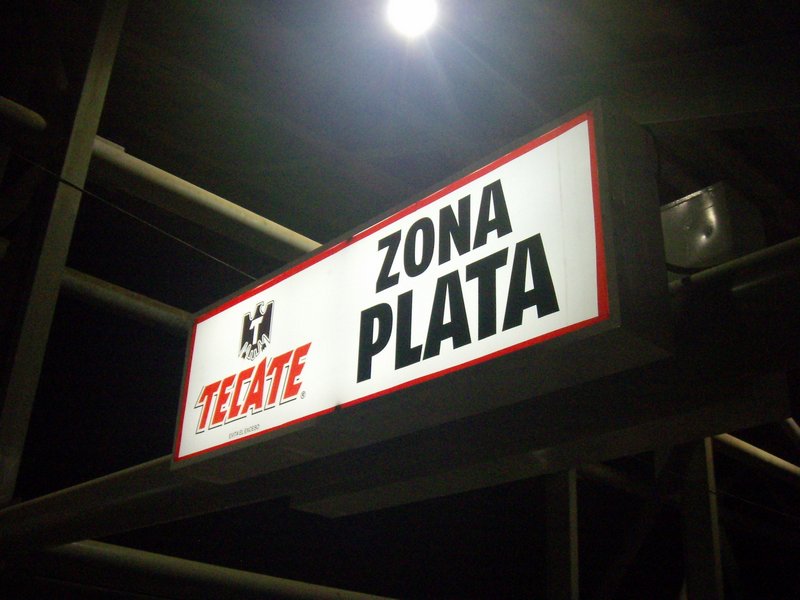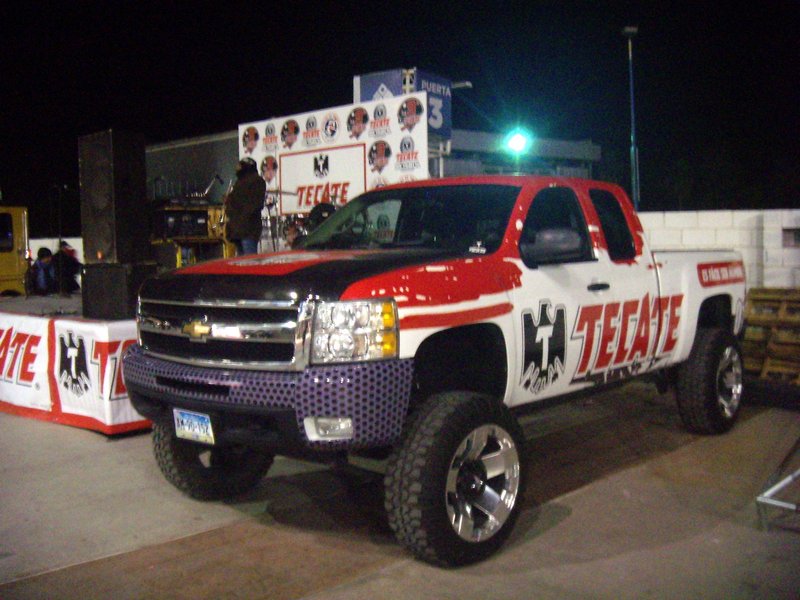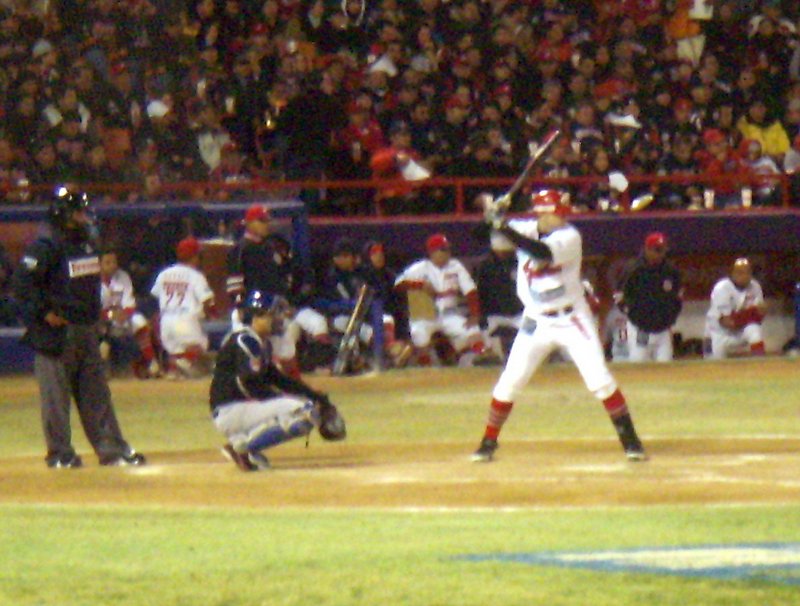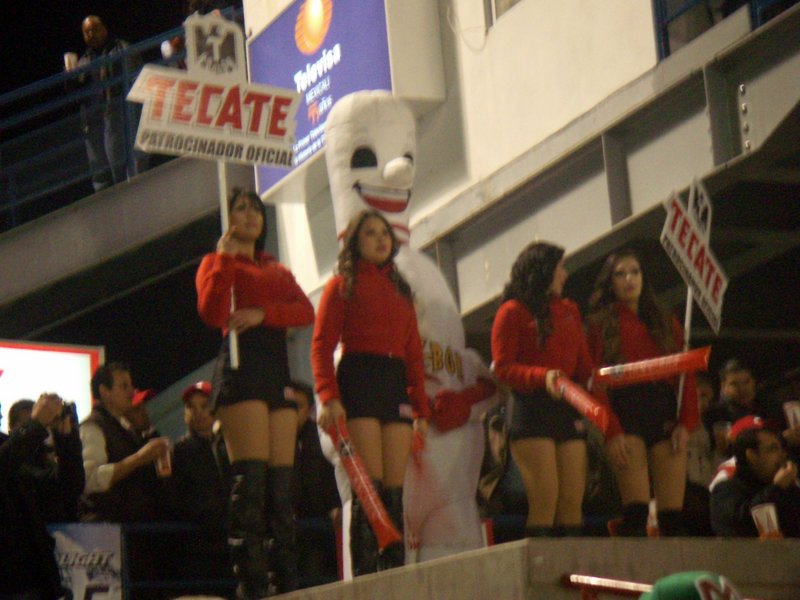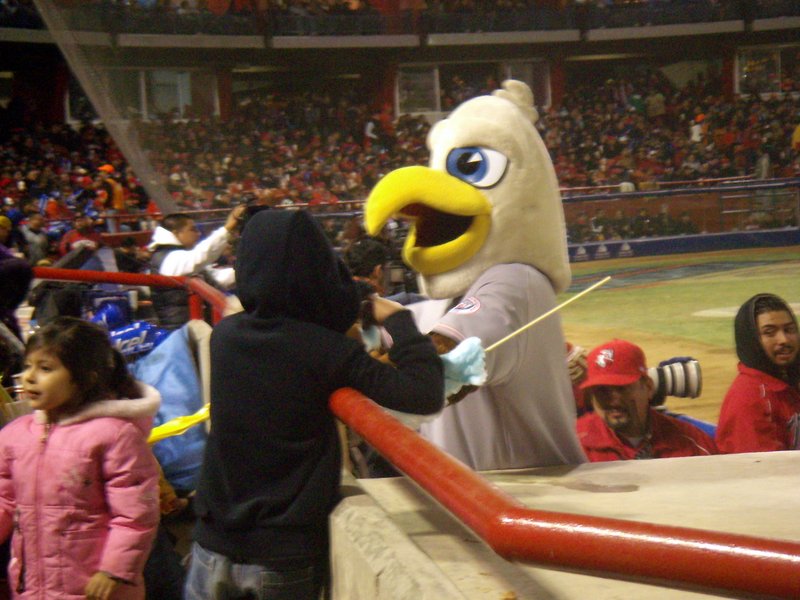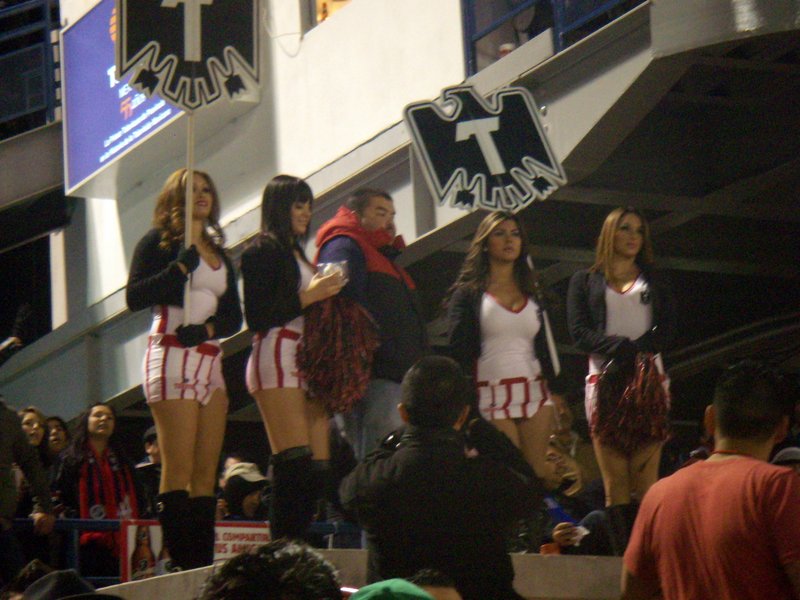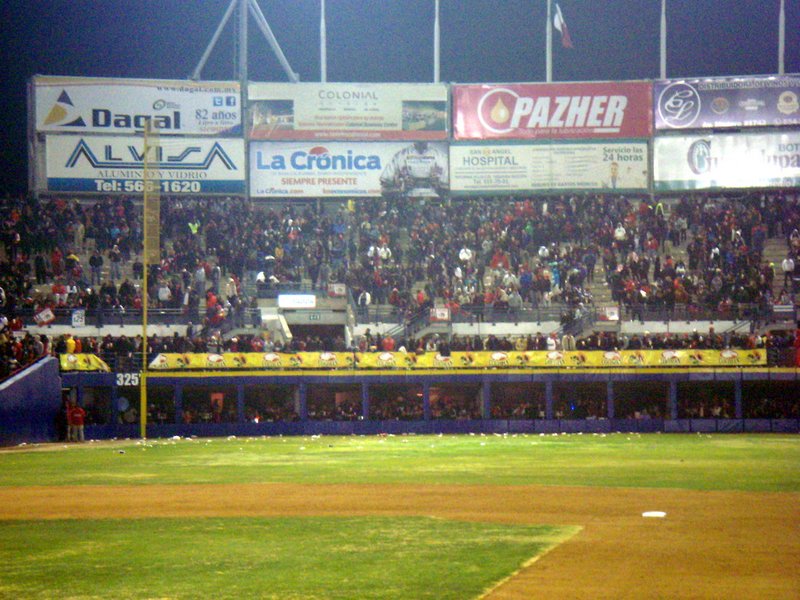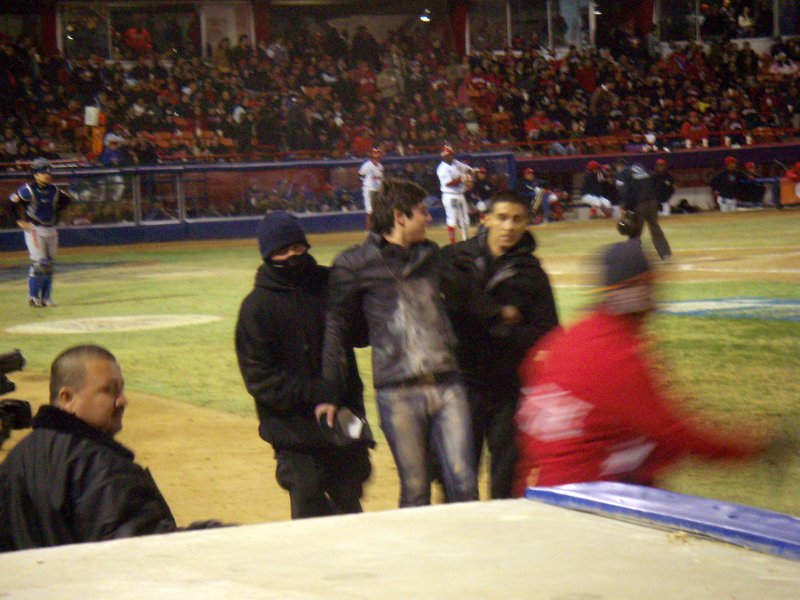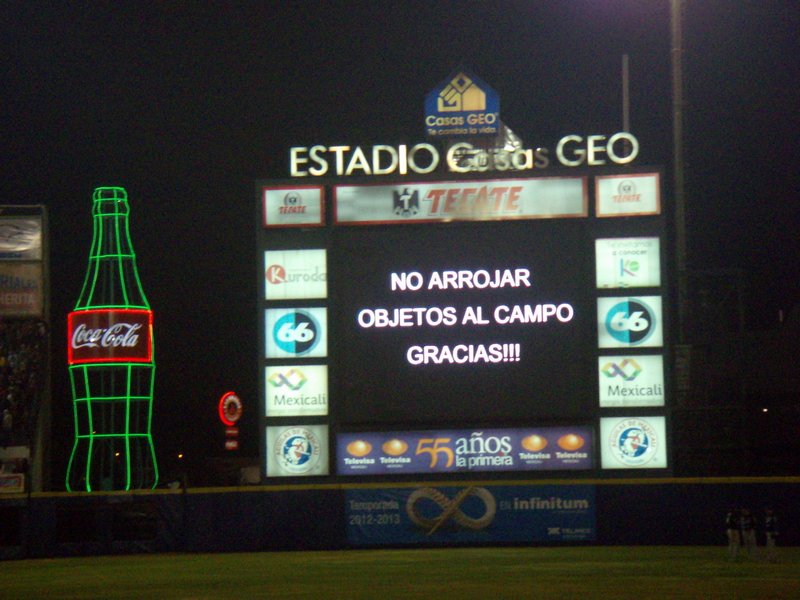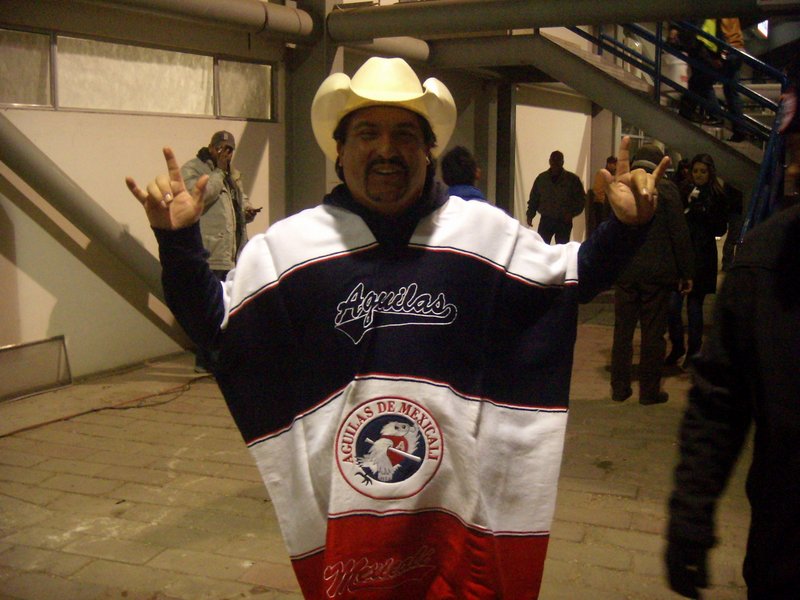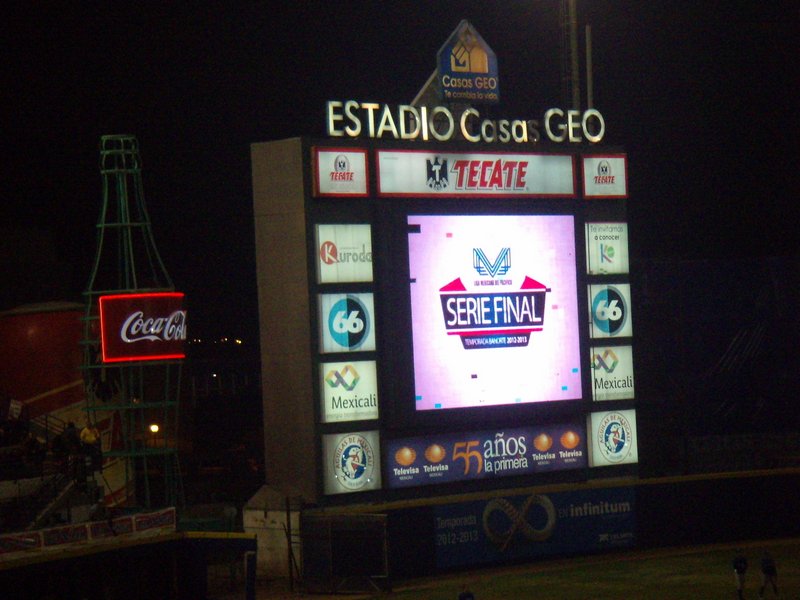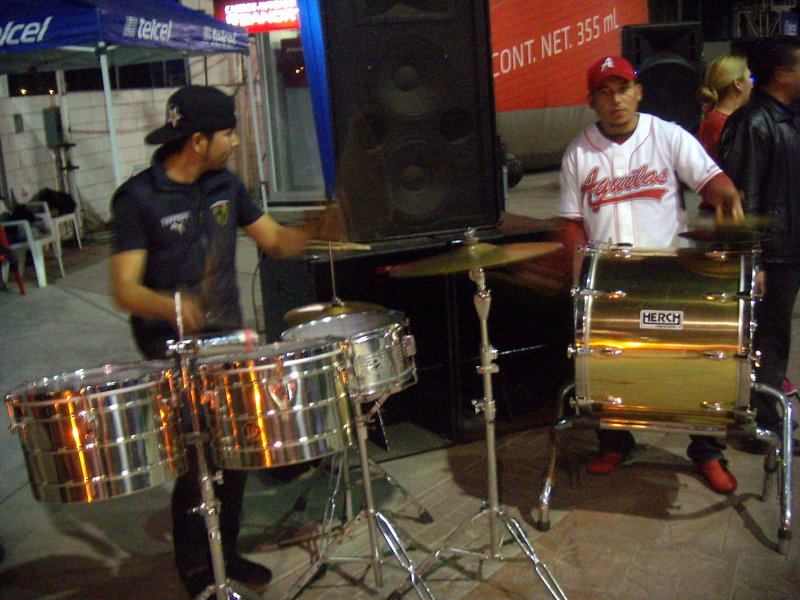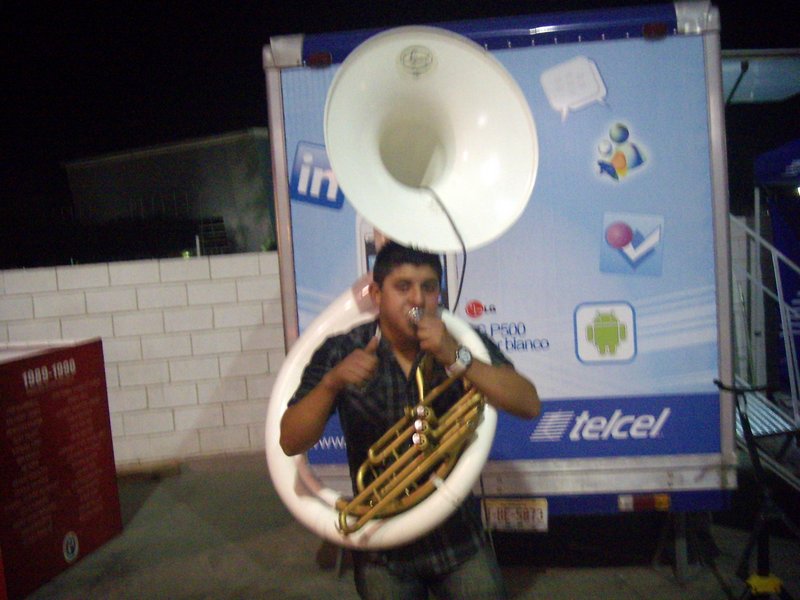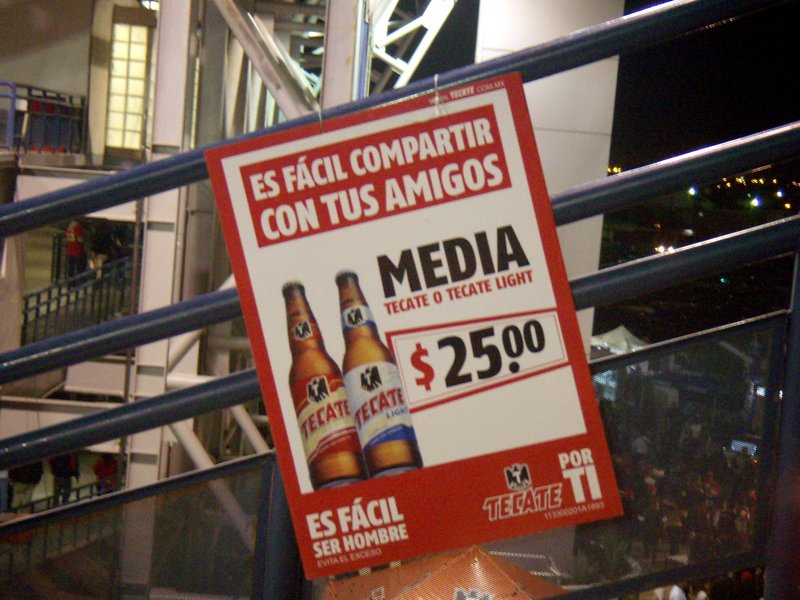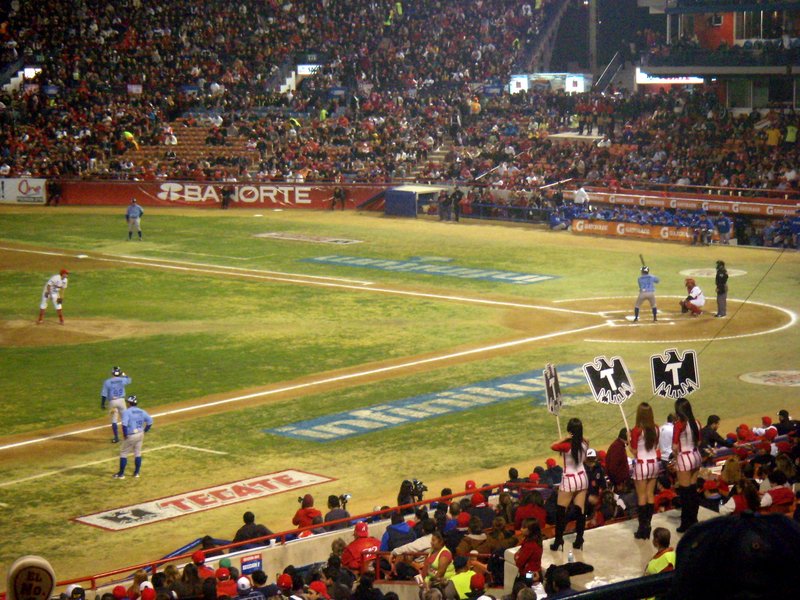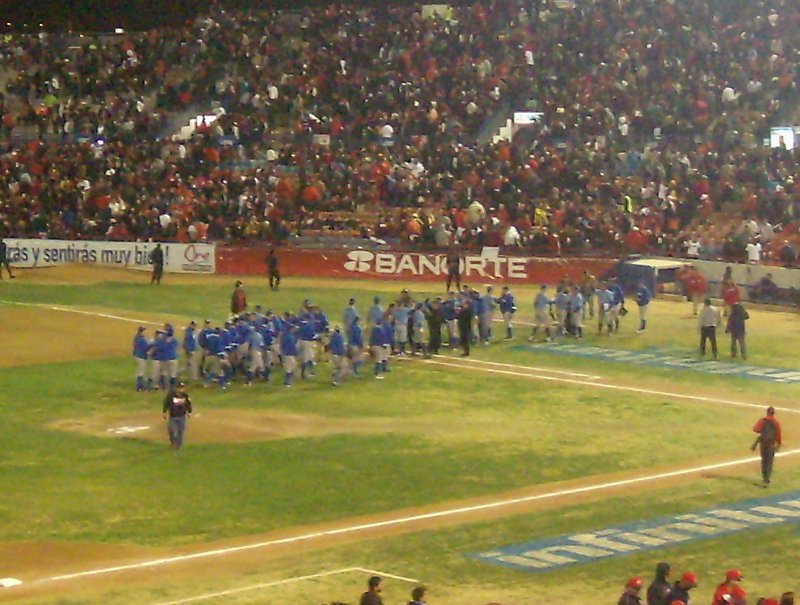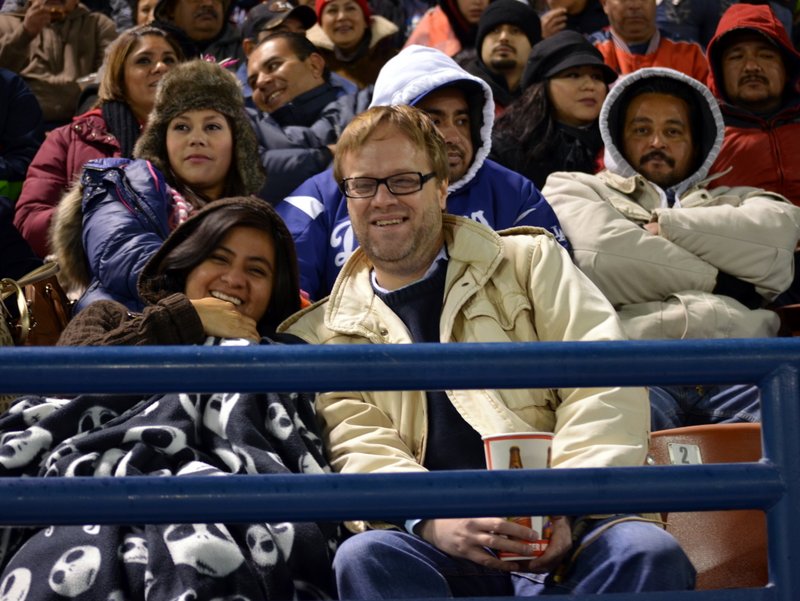
Although Mexico has a national baseball league which runs during the summer the strongest teams play in the Mexican Pacific League (LMP), which runs from October to January. Baja California's sole representative in the eight team league are the Águilas, with the rest of the teams coming from the states of Sonora (3) and Sinaloa (4). The league part of the season runs from mid October to the end of the calendar year, and then the post season takes place in January. The winners then represent Mexico in the Serie del Caribe (Caribbean Series) against the champions of concurrent winter leagues in the Dominican Republic, Puerto Rico and Venezuela.
The Águilas (Eagles), or los Caballeros Águilas de Mexicali to give them their more formal name, are named after the Eagle Cavaliers of the Aztec Empire. They hosted the Serie del Caribe in 2009, in their 19,500 capacity stadium known to all but the sponsors as "El Nido" (The Nest). Not that they were good enough to win the league and qualify that year. In fact, just three league titles and one Serie del Caribe victory (in 1986) since the league took its current form in 1970 mark the Águilas as underachievers, especially as they have the biggest stadium and are based in the largest city involved in the competition. It was with no shortage of excitement then that the Águilas (literally!) flew into the 2012/13 post season, and long suffering fans may have been forgiven for believing that the sleeping giant may finally wake up and reward them for their patience and loyalty.
There's always a lively yet friendly atmosphere in the stadium, particularly when you consider the number of people originally from Sonora and Sinaloa who live in Mexicali. People also cross the nearby border to get a baseball fix during the MLB's off season. Almost all of the games are played in the evening. This is of necessity at the start of the season, when it's still blisteringly hot in Mexicali, but by the beginning of January evenings can be bitterly cold. It must come as a shock to people from places like Mazatlán where the temperature varies little from one month to the next when they come to a city famed as Mexico's hottest and end up freezing!
It was certainly a bitterly cold night on January 10th when the Águilas sealed victory over the Venados de Mazatlán (Mazatlán Deer) to qualify for the semifinals. The previous evening they'd taken the seven match series to a decider with a late homerun from Wes Bankston, so people were anticipating a close game as much as they were expecting the cold. I wore two pairs of socks, three tee shirts and a five day old beard to combat the cold - Norma took three blankets, which just about did the job. It took ages to get into the stadium, even though everyone there had already acquired their tickets. News of the mountain road which connects Mexicali with Tijuana being closed due to snow reached us as the Águilas won easily on the night 7-0.
A week later and we were back, on a less challenging night for weather though equally challenging for gaining access to the stadium, to see the team seal an easy victory over the Algodoneros de Guasave (Guasave Cotton Growers), having opened up a 3-1 series lead the night before. Except it didn't work out like that, the home team squandering a lead in the 5th and ending up losing 8-5, and necessitating a return to Guasave to complete the series. It was all too much for some of the people there, and a couple of drunken individuals got onto the playing area and had to be escorted from the field. Three nights later the Baja team prevailed by the narrowest of margins to win the series the hard way 4-3.
The Águilas' opponents in the final the following week were the Yaquis de Ciudad Obregón, who were looking to win the title for a record third consecutive time, and also add to their 2011 Serie del Caribe victory. The Yaquis, incidentally, are named after the indigenous people from their area of the state of Sonora. After all the waiting to get in for the previous two games we got there really early, way before the scheduled 7:30 start. There was a good atmosphere building already in the stadium, with plenty of live music and the cheve (beer) flowing. Unfortunately, the Águilas were outclassed, 4-2 on the night, and whitewashed 4-0 in the series by a far better side.
Disappointment turned to happiness on the 7th February, however, when the Yaquis beat the Leones del Escogido (Lions of the Chosen One) from the Dominican Republic in Hermosillo to become Serie del Caribe champions for the second time in three years. It was an epic attritional final, lasting 18 innings and seven and a half hours - not that anyone in Mexico minded! In Mexicali we just had to cross the car park to the Auditorio to catch up with the Soles latest assault on the national basketball league, but that's another story...
Some terminology:
The pitcher: el lanzador (though you do hear pitchero as well)
The catcher: el receptor
First/second/third base: primera/segunda/tercera base
Shortstop: el parador en corto
Outfielders: jardineros (gardeners) - the outfield is el jardin (the garden)
Homerun: jonrón or cuadrangular
Struck out: poncheado - also known as a "chocolate" (choco-lah-tay)
If you're in the crowd and you drop the ball expect someone to shout "Burro" (donkey) at you!


